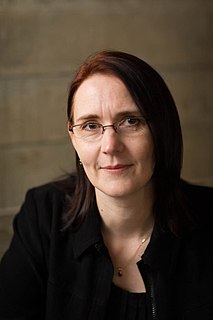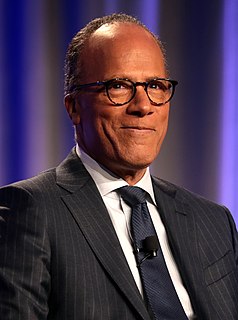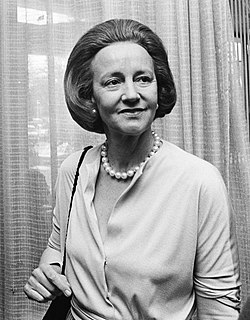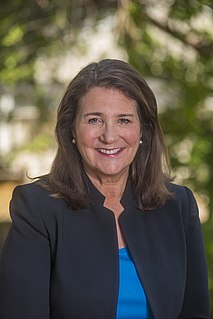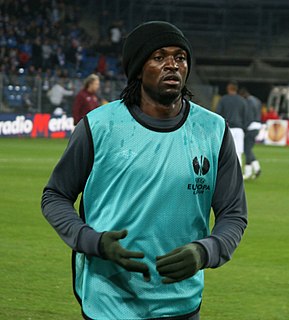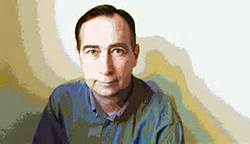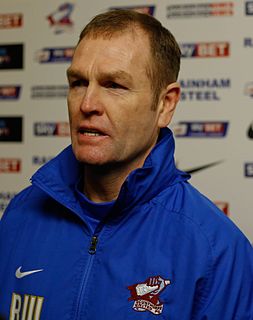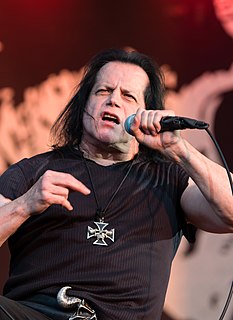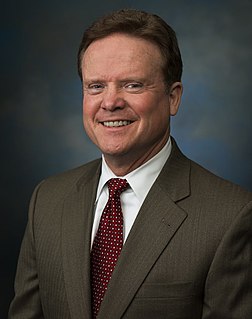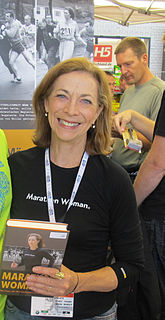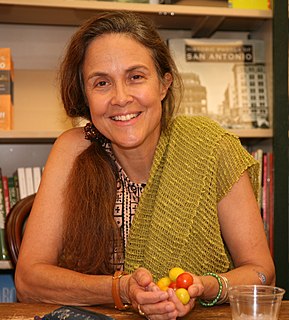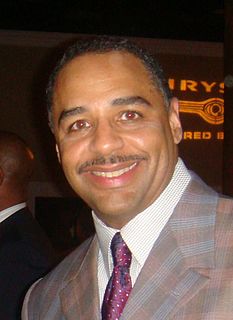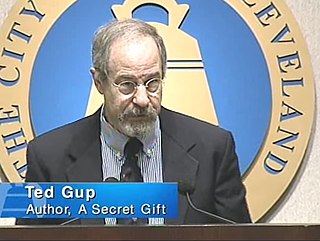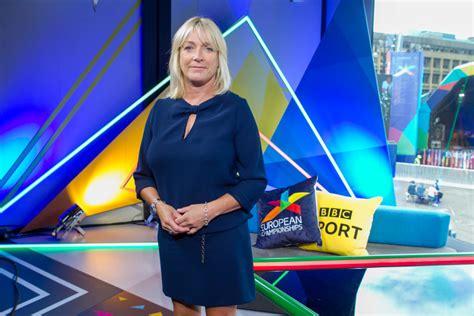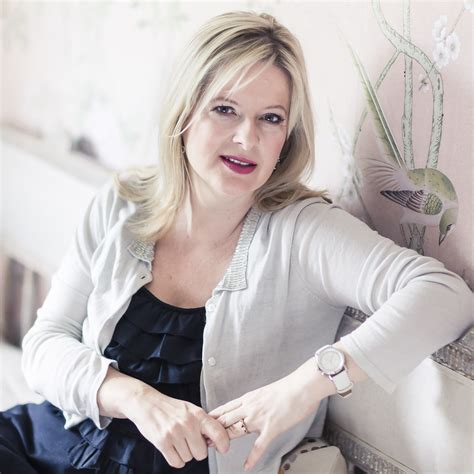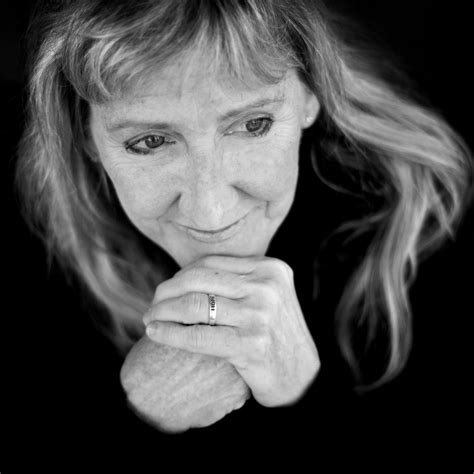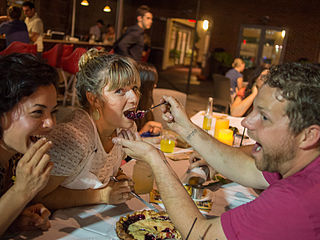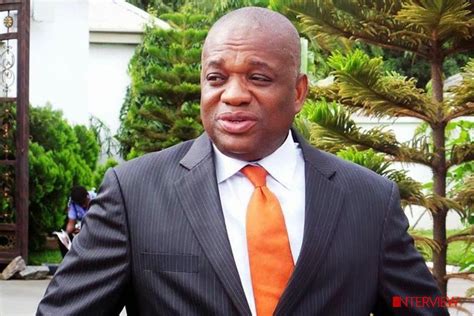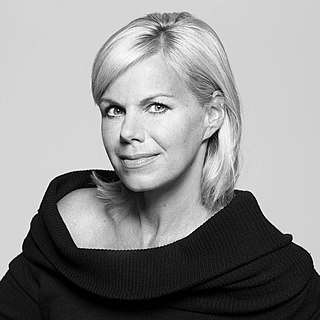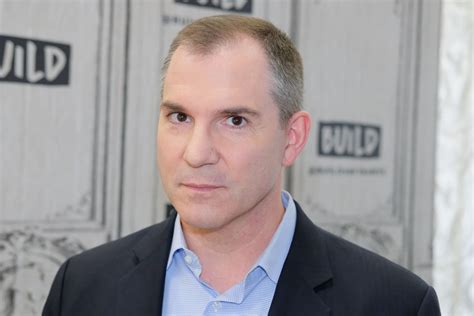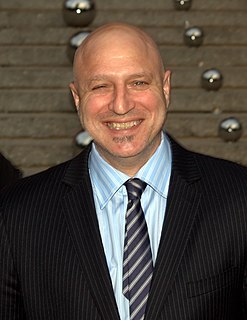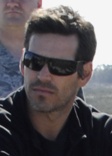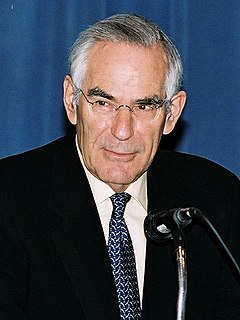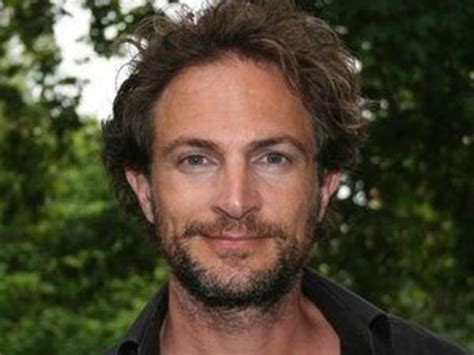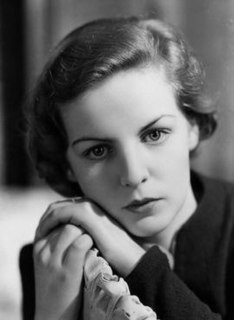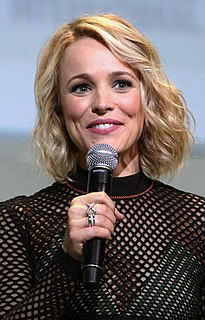Top 1129 Journalist Quotes & Sayings - Page 18
Explore popular Journalist quotes.
Last updated on December 4, 2024.
I had two competing ambitions when I was a child: I wanted to be a Scientist and Discover Great Things, but I also wanted to be an Author and Write Great Things. I've always tried to combine the analytical with the creative, to some extent or another, because I find it hard to do one without the other. I've worked as a tech journalist, social media consultant, and now am self-publishing fiction.
There is something I like about talking to journalists that really goes beyond promotion because you aren't just talking to the journalist, but you are talking through them to people who presumably are fans of the Rolling Stones. The interviews give you a chance to say a few things and maybe clear up some of the things people read about the band.
I am a writer, a professional journalist with serious credentials in Crime, Craziness, and Politics. I have mingled with dangerous criminals and attended many trials . . . from Hell's Angels, Black Panthers and Chicano street fighters to Roxanne Pulitzer and even Richard Nixon, back in the good old days before he was run out of the White House for fraud, perjury, graft, and criminal negligence.
I think we're more relevant than ever because it is such a noisy environment out there. What's a journalist now? It's anybody with a way to get information out and you're sitting there with your smartphone in front of you. That's what we're up against now. There's a lot of unfiltered information. Some of it is accurate, some of it way off base. We're that safe port in the storm.
For more than eight decades, Washington has been my hometown. ... It is a city that offers me more people -- more different kinds of people -- than I could otherwise possibly have come to know in a lifetime: the native Washingtonian, the local merchant, the foreign diplomat, the ever-present tourist, the public servant, the journalist, the president, the friend.
We became a congresswoman, a stay-at-home mom, a filmmaker, and a journalist. And Lino and I taught our children that they could rise to even greater heights. They could become surgeons, CEOs, supreme court justices, secretary of state, and even president of the United States. We didn't teach our daughters that they were second-class citizens.
I want to go on living even after my death! And therefore I am grateful to God for this gift, this possibility of developing myself and of writing, of expressing all that is in me. I can shake off everything if I write; my sorrows disappear; my courage is reborn. But, and that is the great question, will I ever be able to write anything great, will I ever become a journalist or a writer?
Sometimes during a conversation with a journalist - where you are answering things you never normally talk about, not even with some of your closest friends - you end up being quite confessional, and you don't think about the amplification of that. No matter how fancy these journalists are, they have editors or political leanings behind their publications, which means that, basically, they're going to shape what you've said into an article they've already written. So you have to be really careful with your words.
This surface good-nature which captivates a new acquaintance and is no bar to treachery, which knows no scruple and is never at fault for an excuse, which makes an outcry at the wound which it condones, is one of the most distinctive features of the journalist. This camaraderie (the word is a stroke of genius) corrodes the noblest minds; it eats into their pride like rust, kills the germ of great deeds, and lends a sanction to moral cowardice.
I've always liked the old-school journalism approach. I don't have to take a side on any controversial issue. I get to present various sides. And my goal, as a journalist covering the Bible beat, is to present the strengths and weaknesses of each side - to the extent that readers can't tell what my opinion is. That's easy enough for me to do much of the time because I'm as confused as the next guy, and trusting a lot on Jesus for what I don't understand.
[Electronic newspapers will bring] plenty of ulcers for journalists because they'll have new deadlines every 60 seconds. It'll be a race to file. On the other hand, because space is infinite there will hopefully be more room for thoughtful pieces, longer pieces, the kind that a journalist wishes he or she could do but doesn't have the space.
What everybody forgets is that when I was a journalist in Britain and in the United States, I was always a Canadian. And the price of expatriation does not go down, it goes up. I never felt part of the political common sense of Britain. I never felt it in the United States. I had no natural home in Britain and the U.S.
We are hurtling back into a Soviet abyss, into an information vacuum that spells death from our own ignorance. All we have left is the internet, where information is still freely available. For the rest, if you want to go on working as a journalist, it's total servility to Putin. Otherwise, it can be death, the bullet, poison, or trial -whatever our special services, Putin's guard dogs, see fit.
I remember researching a really complicated article and having trouble keeping track of all the different perspectives. I ended up drawing a diagram to help myself follow how the ideas were interrelated. I looked at the diagram when I had finished and thought, "Oh, maybe I don't need to write the article now - maybe I've done my job as a journalist. I can convey my understanding through the diagram."
In the eight years I worked at newspapers, even during a little stretch when I was a film critic, I was never, ever doing exclusively criticism. In the daily newspaper world, much more value is placed on reporting than on thinking abstractly about art. The eight years I was in newspapers, I was mainly a journalist in the conventional sense, and just doing criticism when there were opportunities.
When I was leaving NBC News to go to CNN, people would say, 'What?! Why would you possibly leave the 'Today Show' to go to cable?' If I would've listened to people, I would've been on a great platform, but I wouldn't have grown as a journalist. So far, most of the steps in my career have been really good.
It's hard for me to think about this, but I first went to Southeast Asia as a Marine more than 40 years ago, as a young Marine. I was on Okinawa and then in Vietnam. I've returned in many different hats, which I think has helped me to form my own views about policy out there. I've spent a good bit of time in this region as a journalist.
At the finish line of the 1967 Boston Marathon, one crabby journalist said it was just a one-off deal and women weren't going to run. Only a 20-year-old who had just run a marathon and was shot full of endorphin would say this but I said that there's going to come a day in our lives when women's running is as popular and as men's.
I never did any training in journalism or in finance, so I really was in the deep end. I got very good at going to press conferences and nodding. I'd figure it out when I got back to the office. Charts and numbers. I've never been great with facts, ever, my whole life. For a journalist, that's not a very good trait.
Creative non-fiction is such a liberating genre because it allows the non-fiction writer, whether he or she be journalist or essayist, to use all of the techniques of the fiction writer and all of the ideas, creative approaches, that fiction writers get a chance to use, but they have to use it in a true story.
When I started out as a music journalist, at the end of the 1980s, it was generally assumed that we were living through the lamest music era the world would ever see. But those were also the years when hip-hop exploded, beatbox disco soared, indie rock took off, and new wave invented a language of teen angst.
My father was very disappointed by war and fighting. And he thought language could help us out of cycles of revenge and animosity. And so, as a journalist, he always found himself asking lots of questions and trying to gather information. He was always very clear to underscore the fact that Jewish people and Arab people were brother and sister.
Once, a French journalist told me that all my films are the same. I said, 'Excuse me? I work hard to make them different.' What she meant was that in my films there is a character that faces insurmountable odds, and they overcome them. But I thought that might be true, but you need certain factors for drama, and you need to overcome them.
I also know that I have represented for us a certain kind of journalist and for me over the years when an older Black person comes and tells me how proud they are of me and the way I represent us on television, or when a younger person says to me, 'Hey Mr. Gordon, I watched you growing up and my parents made me watch you,'.
While I love to read contemporary fiction, I'm not drawn to writing it. Perhaps it's because the former journalist in me is too inhibited by the press of reality; when I think about writing of my own time I always think about nonfiction narratives. Or perhaps it's just that I find the present too confounding.
Although he reputedly hated the label of 'guru', Peter Drucker was, by any standards, the greatest management guru the world has yet seen. In 1996, the McKinsey Quarterly journal described him as the 'the one guru to whom other gurus kowtow' and Robert Heller described him as 'the greatest man in the history of management', praise indeed for a man who described himself as 'just an old journalist'.
I love the idea of a shield law; I don't know of any journalist who doesn't love the idea of a shield law. It's all in the details. Some of the shield laws that were floating around sounded good, but when you looked at them, exceptions or exclusions or broadness in the language really invited some problems.
One time I was doing an interview for a gay magazine and halfway through the journalist found out I wasn't gay. He said, 'Sorry, I can't continue the interview.' Because they only had gay public figures in their magazine. I felt so crestfallen. I wanted to tell him: but I play fundraisers for gay marriage! I'd rather my kids were gay than straight!'
I didn't go to university. They offered me a job as a junior reporter and I went off to work for the Southern Reporter. They sent me to college to do my NCTJ, which is a professional exam for journalists, and I started work as a print journalist purely because I was just a pest. They couldn't think of anything other than giving me a job to stop me hanging around.
One of the skills of a journalist, though, is to find people who can teach him what he needs to know. So instead of taking courses, I've been very lucky in that I found teachers - scientists, especially - who were willing to teach me what I needed to know, whether it was about genetically modified crops or how photosynthesis works, and so on. I just find my teachers and don't have to pay for my education.
My son was about five or six months old, and he was ill, and I was sent to New York to interview three people back to back. I got home, and I saw my baby. He had been very ill, and he was on three kinds of antibiotics. I'd been away for eight days. I looked at him and thought, 'What am I doing? I'm a terrible mother and a terrible journalist.'
Usually when I drank too much, I could guess why I did so, the objective being to murder a state of consciousness that I didn't have the courage to sustain--a fear of heights, which sometimes during the carnival of the 1960s accompanied my attempts to transform the bourgeois journalist into an avant-garde novelist. The stepped-up ambition was a commonplace among the would-be William Faulkners of my generation; nearly always it resulted in commercial failure and literary embarrassment.
A journalist is the lookout on the bridge of the ship of state. He notes the passing sail, the little things of interest that dot the horizon in fine weather. He reports the drifting castaway whom the ship can save. He peers through fog and storm to give warning of dangers ahead. He is not thinking of his wages or of the profits of his owners. He is there to watch over the safety and the welfare of the people who trust him.
A woman journalist in England asked me why Americans usually wrote about their childhood and a past that happened only in imagination, why they never wrote about the present. This bothered me until I realized why - that a novelist wants to know how it comes out, that he can't be omnipotent writing a book about the present, particularly this one.
Churchill is the very type of a corrupt journalist. There is not a worse prostitute in politics. He himself has written that it'sunimaginable what can be done in war with the help of lies. He's an utterly amoral repulsive creature. I'm convinced that he has his place of refuge ready beyond the Atlantic. He obviously won't seek sanctuary in Canada. In Canada he'd be beaten up. He'll go to his friends the Yankees. As soon as this damnable winter is over, we'll remedy all that.
I'm sure Donald Trump will think that he has the truth, and some journalist is arguing that he has truth, and somebody else is arguing that they have the truth. And in fact it's even worse than that because they're so hell bent on their arguments that they will distort the truth consciously. They'll manipulate the facts to support their arguments because they're so hung up in the fight. That's where the problem is, so we argue all the time.
I'm not interested in details that might get someone into trouble. I'm more interested in generalities rather than the particulars, as a journalist would be. Names, dates and times don't interest me at all. I'm interested in feelings and emotions. Most people are game, once they realize that you're on the level as far as that's concerned and you're not about exposing them, then they feel quite free to talk about it. Police officers and social workers are no exception.
A good person is one who follows the Ten Commandments and the golden rule. There is plenty of precedent in history to guide us and we probably evolved to be sensitive to Bible-Golden Rule situations. But the dilemmas faced by a worker - a journalist, an architect, an auditor - or by a citizen (what position to take on stem cell research, whether to run for office, what is the proper balance between taxation and social nets) - are not questions that can be answered by traditional texts or precedents.
Michel duCille has been an editor of indelible integrity, decency, and a deep sense of humanity. Michel stood by me during the highlights and shadows of my life. We began our careers together as interns at 'The Miami Herald.' His photography over the years embodied the concerned journalist, which carried over to his work in management.
I was going to be a writer, and that turned into journalist. And then that turned into a career in children's literature, which turned into early childhood education, which turned into psychology, which turned into premed, which turned into nursing school, which turned into communication, which turned into marketing and advertising.
When people watch me on TV they see part of my life. I wanted to let them know the real me behind the scenes. The child who was a concert violinist from the age of six. The young woman who took on the challenge to compete in the Miss America pageant. The television journalist for twenty-five years. The mother of two who, just like most women, struggles to balance work and family.
The way the electoral college works, the way the states have kind of sorted themselves out in such a way that most states, the conclusion is foregone and there's no reason for the candidate to be there and for that reason, for that same, because of those same dynamics there's no reason for the journalist to be there combing the opinions of voters there because we know that California's gonna vote Democratic.
A couple of months ago, I was down in Florida for the Food and Wine Festival. And this journalist grabbed me and said, 'How does it feel to be a TV guy? You're no longer in the restaurant business.' And I laughed. I asked him, 'How long do you think it takes me to do a season?' He said, 'Well, 200 days.' And I was like, '200 days? Try 20!'
Well, my wife doesn't engage. I mean if you want to look back, really dig down and be a journalist, look at the timelines and you will see that there is a big discrepancy and there really is no going back and forth, my wife sometimes I mean you eventually you have to say something, enough is enough, but the truth is she has always taken the high road.
The byline is a replacement for many other things, not the least of them money. If someone ever does a great psychological profile of journalism as a profession, what will be apparent will be the need for gratification—if not instant, then certainly relatively immediate. Reporters take sustenance from their bylines; they are a reflection of who you are, what you do, and why, to an uncommon degree, you exist. ... A journalist always wonders: If my byline disappears, have I disappeared as well?
Eric Seven does not believe in love at first sight. He corrects himself. Even in that moment, the moment that it happens, he fees his journalist’s brain make a correction, rubbing out a long-held belief, writing a new one in its place. He did not believe in love at first sight. He thinks he might do so now.
In a sense, journalism can be both helpful and detrimental to a writer of fiction because the kind of writing you need to do as a journalist is so different. It has to be clear, unambiguous, concise, and as a writer often you are trying to do things that are more ambiguous. I find that writing fiction is often an antidote to reading and writing too much journalism.
What Malcolm X did not know is that back in 1962, a collaborator of Alex Haley, fellow named - a journalist named Alfred Balk had approached the F.B.I. regarding an article that he and Haley were writing together for The Saturday Evening Post, and the F.B.I. had an interest in castigating the Nation of Islam, and isolating it from the mainstream of Negro civil rights activity.
I met journalists that were on both sides of things. People who are young, enthusiastic and hard working journalists working on the online side and people who had been there forever. There was one journalist who had running shoes under her desk in case she had to kick of her heels and go out and cover a breaking news story.
I have no business being a journalist. I'm the least, I'm the least - I'm the most trusting, I absolutely make a habit of believing anything that anybody tells me about themselves. I've never had any reason in the world to think that anyone has wanted to harm me, or lie to me. I believe whatever is being sold, most of the time.
I just got asked by another journalist 'Are you a feminist?' and I was just like... Is there a strange thing at the moment where you have to come out as a feminist? I've been asked if I'm a feminist so many times recently, and I'm just like 'Yes, yes, for God's sake, yes! Is there something that I give off that says I'm not?'
